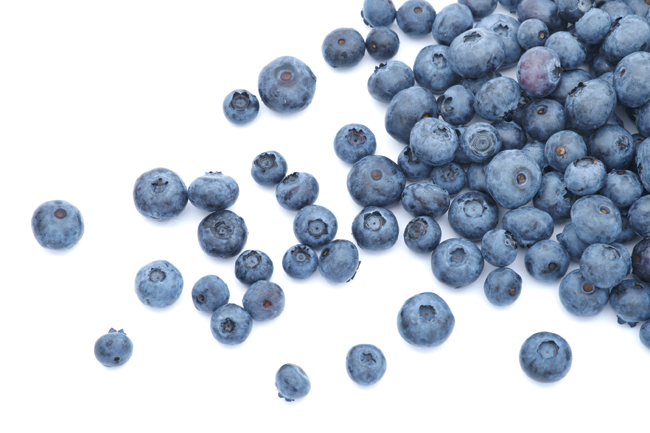Georgina Young of Greens of the Stone Age explains how maintaining the balance between ‘good’ and ‘bad’ bacteria can help fight common digestive issues…

Probiotics and prebiotics – you’ve probably heard these terms being hauled around the healthy eating scene lately, but what’s the difference between the two? How do they work? Do you need them? And if so how do you obtain them?
What are probiotics and prebiotics?
The word probiotic is of mixed origin, derived from the Latin preposition pro meaning ‘for’, and biotic from the Greek noun bios for ‘life’, thus ‘probiotic’ signifies a promotion of life. And probiotics are just that – microorganisms or ‘microflora’ that promote improved health, especially within the digestive and immune system. Probiotics are also particularly useful at deterring certain pathogens (harmful microorganisms or bacteria) and germs from entering the body.
Probiotics can be found in certain foods and supplements, but they also live naturally within the gastrointestinal tract of your body, often being referred to as ‘good’ or ‘friendly’ bacteria, as they help to keep your gut healthy.
Your gut microbiome, the environment these microorganisms inhabit, contains trillions of bacteria – both ‘good’ and ‘bad’. In fact, your body contains a hefty 10 trillion human cells and a whopping 100 trillion bacterial cells. These bacterial cells work in symbiosis within your body, almost as though they were an organ themselves.
Prebiotics on the other hand, have a synergistic relationship with probiotics, inducing the growth and activity, and keeping them alive. Prebiotics are essentially a food source for probiotics. You can find prebiotics in foods high in resistant starches such as raw chicory root, garlic and bananas.
How do probiotics keep us healthy?
Probiotics are rather nifty little things, working by crowding out and displacing the bad or ‘pathogenic’ bacteria, preventing their ability to host within the body and thus staving off disease, infection and inflammation.
Probiotics synthesise the vitamins B and K, folate and short-chain fatty acids, in addition to enhancing digestion and nutrient absorption by regulating intestinal mucus secretion. These short-chain fatty acids play a particularly important role within our bodies as they provide us with a rather modest 5-15% of our daily energy requirements.
Your eating habits can even be determined by your gut microbes as they influence the signals sent to your brain via the vagus nerve. The vagus nerve can drive excessive eating behaviours when the nerve is stimulated by gut neurohormones, subsequently leading to weight gain. In guts with a healthy balance of probiotics however, they will regulate the secretion of these neurohormones, and the overall body composition remains unaffected.
Probiotic bacteria within a healthy gut always outnumber the bad by a ratio of 9:1. If this ratio becomes unbalanced it can cause dysbiosis within the gut, leading to an array of health problems ranging from asthma, allergies, skin conditions, yeast infections and digestive disturbances.
These illnesses all tend to occur due to the immune system becoming overloaded, causing a suppression of immune factors, or ‘transfer factors’ – tiny molecules that communicate with the immune system in order to protect the body from allergies, illness and disease.
A link between probiotics and the brain has also been found by researchers – known as the ‘gut-brain’ connection. It has been discovered that probiotics can directly impact your brain’s behaviour, improving neurotransmitter function which can drastically reduce the presence of mental health issues such as anxiety, depression and stress. In fact, the probiotic bacteria found in yoghurt produces GABA (gamma-aminobutyric acid), an inhibitory transmitter within the brain that relieves anxiety.
It is even thought that probiotics can improve cognitive functions such as focus, learning and memory.
Do you need to take a probiotic supplement?
Now that we know how probiotics help our body, the next question is – do we need them? Is obtaining our probiotics from fermented foods really enough? Or should we be supplementing?
As mentioned before, a healthy gut will contain mostly good bacteria, however, lack of sleep, increased physical and/or mental stress levels, infection, food poisoning, or simply consuming processed foods (or the wrong foods for your body) can disturb the gut flora, throwing it out of balance, depleting your probiotic stores, lowering your immune system and even causing weight gain.
It is important to note that good gut bacteria can also be depleted after running a course of antibiotics or strong medications. The word antibiotic means ‘anti-life’ and after all they are designed to kill bacteria within the body, be it good or bad.
So, the answer in short is that we only need to supplement with probiotics if our gut’s natural stores have been depleted by one of the above factors.
How to pick the right probiotic supplement for you
Most probiotic supplements contain two common genus groups; lactobacillus and bifidobacterium. Lactobacillus is used in cases of infectious diarrhea and lactose intolerance, and bifidobacterium may help to ease the symptoms of irritable bowel syndrome (IBS), enhance immune response, and reduce respiratory tract infections.
If you follow a particular free-from diet it is important to make sure that your product is allergen free, so look for a supplement that is dairy, gluten and GMO free.
To get the most from your probiotic supplement, ensure you feed them with prebiotics. Some supplements already include prebiotics, but artichokes, bananas, berries, flax, leeks and sweet potatoes are all good sources too.
Use your supplement for at least 2 weeks to reap the full benefits, and once you no longer require them, continue to keep your probiotic levels topped up with probiotic-rich foods as part of an ongoing healthy diet.

Top probiotic food sources
Raw kefir
Raw kefir is a tart, yoghurt-like drink made by fermenting kefir grains in milk. It’s packed full of probiotics and is nutritionally rich in vitamins A,B, D, E and K. It is also thought to reduce lactose intolerance symptoms and lower cholesterol. Opt for raw kefir whenever available. Drink straight or pour over fresh berries and fruit. You can make your own kefir, or buy it from your local health food store.
Raw sauerkraut
Raw fermented sauerkraut is made by fermenting raw cabbage by massaging with sea salt to create a salty brine, and leaving for at least 1 month. It’s crunchy and tangy, perfect served with salads.
Kombucha
My favourite way to get a daily dose of probiotics, kombucha is a tasty, low sugar, organic soft drink made by fermenting tea. The natural fermentation process gives it its fizz, and it’s packed full of enzymes, antioxidants, B vitamins and beneficial yeasts and bacteria. While you can make your own, it can be a little tricky, so you might want to buy some first.
Microalgaes
Blue-green algae such as the ever popular spirulina and chlorella contain probiotic elements which increase the amount of lactobacillus and bifidobacteria within the bodies’ digestive tract. Great added to your morning smoothies or in raw chocolate treats.
 About the author: Georgie is a fresh faced, freelance writer and recipe developer who specialises in nutrition, fitness, and health and well-being. She enjoys sharing her passion for cooking, Paleofying food, and exploring Veganism within the Paleo diet on her blog, Greens of the Stone Age, and along the way has helped many friends to take a more holistic approach to their hectic lifestyles. She have further expanded upon her love of the Paleo way of living by setting up Primal Eye Magazine – the UK’s 1st online Paleo lifestyle magazine!
About the author: Georgie is a fresh faced, freelance writer and recipe developer who specialises in nutrition, fitness, and health and well-being. She enjoys sharing her passion for cooking, Paleofying food, and exploring Veganism within the Paleo diet on her blog, Greens of the Stone Age, and along the way has helped many friends to take a more holistic approach to their hectic lifestyles. She have further expanded upon her love of the Paleo way of living by setting up Primal Eye Magazine – the UK’s 1st online Paleo lifestyle magazine!
